Why Can’t You Compost Meat (Is It Even Possible?)
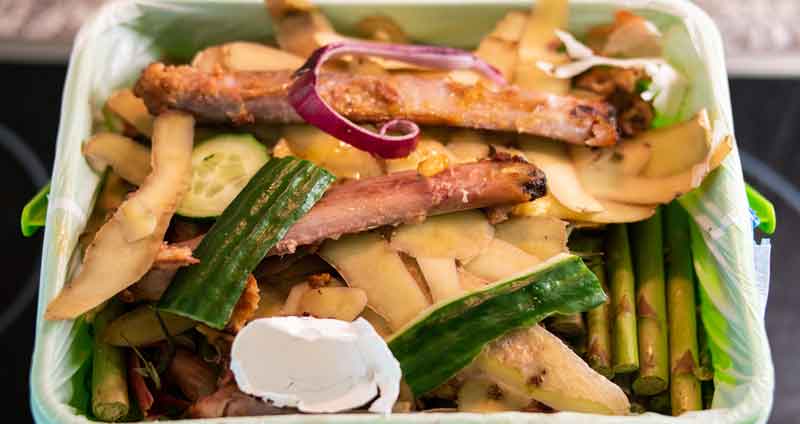
If you’re new to the composting game, you’ve likely been warned you shouldn’t compost meat. The problem is, you’re more carnivore than herbivore, so a decent amount of your kitchen scraps come from animals, not plants.
But it seems a shame to throw away those tough pieces of steak and not recycle them.
Meat is organic, right?
Surely it will decompose with the rest of your kitchen and garden wastes? Isn’t there a more eco-friendly way to get rid of meat scraps rather than dumping them into the trash?
And why exactly is meat on the forbidden list for composting wastes?
Why Can’t I Put Meat In Compost?
Putting meat in compost is a food safety risk. Decomposing flesh stinks, attracting disease-spreading pests like rats and flies to your garden. Raw and cooked meat can also contain harmful bacteria, which could spread through your compost and later contaminate your crops.
So, meat does indeed decompose. But it can cause all sorts of trouble as it rots.
However, the experts who declare meat a composting no-no might not tell you something. Meat can be composted safely and effectively – just as long as you carefully control the process.
I’ll let you know how to compost meat for experienced and newbie composters.
What Happens If You Put Meat In Compost?
Picture this: While clearing up after a roast chicken lunch, you empty chicken skin left on plates into your compost. You’ve got a cold composting system going, where you throw in organic wastes and let nature do the rest. So, you toss in the chicken scraps and don’t think about them again.
Then a while later, you smell something coming from your compost’s direction so vile you almost pass out. So you investigate just in time to see a rat with a round belly jump out of the compost and scurry away.
What’s behind the stink? It’s the chicken. Decomposing meat smells awful as it breaks down. However, the waste meat is as enticing as freshly baked cupcakes to pesky critters and flies. Which is why the rat had buried itself into your compost.
As if the stomach-turning smell and disease-spreading rodents and flies weren’t bad enough, there’s more to dread when carelessly throwing meat into your compost.
Meat, especially raw, is easily contaminated by harmful bacteria like Salmonella and E. coli. Suppose you throw the bacteria-infected meat into a cold composting system. The bacteria could multiply and work their way through your compost. Then when it’s time to add compost to your growing crops, you might feed them bacteria, which could ultimately make you ill.
Aha, so now those warnings make sense.
If you’re committed to being a full eco-warrior and can’t get yourself to throw meat scraps into the trash, listen up. With extra effort or equipment, you can safely compost meat.
Can You Put Meat In A Compost Bin?
The secret to composting meat safely in a compost bin is heat. A well-designed, meticulously maintained hot compost system can remove the risks associated with composting meat.
Hot composting meat takes work to get right. To kill all nasty bacteria, you need to raise your compost temperature to between 130 and 160°F for five days (then repeat this cycle three times). If you plan to hot compost your meat, buy a compost thermometer to ensure your compost is getting hot enough. (Amazon)
Check “6 rules for successful hot composting”.
Tips: Make sure the meat part of your compost is small compared to the non-animal part, and bury the meat in the center of your compost to keep it away from scavenging animals. This will also put it in the compost core, which is hotter.
Can You Put Meat In A Compost Pile?
It’s only safe to add meat to a compost pile if it’s a hot composting system. The rules are the same, whether you’re composting meat in a bin or an open pile. Ensure the compost temperature stays between 130 and 160°F for five days, and repeat this cycle three times.
Take note that it can be trickier to hot compost in an open pile than in a bin because there’s nothing to contain the compost and hold in heat. Tips: Build your compost pile in an area with plenty of sunlight to help the process. Covering your compost pile with a tarp can help retain heat. (Amazon link)
Can You Put Meat In A Tumbler?
Dare to scrape your meat scraps into your tumbler only if it’s a system that can heat up to between 130 and 160°F for five days (for four cycles).
Tips: Make hot composting easier by using an insulated tumbler with a large chamber. You could put your tumbler in a sunny spot to help keep temperatures high. The Mantis back porch tumbler is an ideal solution for this.
Can You Compost Cooked Meat?
Considering compost temperatures kill the dangerous organisms that might have taken hold of meat, you might wonder whether meat cooked at a high temperature is safe to compost. Unfortunately not. When cooked meat isn’t refrigerated or frozen, it’s vulnerable to bacterial invasion.
Bacteria take over when meat is at room temperature for longer than two hours.
There are three safe ways to compost meat. I’ve already introduced you to the first: hot composting. Below I’ll tell you about two other great methods for beginners.
Can You Compost Raw Meat?
Raw meat is more likely to be contaminated by disease-causing bacteria, so it’s even riskier to compost raw than cooked meat.
The bacteria that easily sneak onto raw meat include Salmonella, Clostridium perfringens, E. coli, Listeria monocytogenes, and Campylobacter, which can all give us food poisoning.
Can Compost Worms Eat Meat?
Red worms do eat meat. The issue is that the decomposing flesh will entice unwanted insects like fruit flies. Plus, it will fill the worm bin with a horrible smell.
It’s not that the worms will turn their noses up at the scraps. Red worms are the munchers in worm compost bins, but they rely on other bacteria to decompose meat before they can consume it. This leads to very foul smells.
It’s best to keep the meaty meals to a minimum or stick to vegan options.
How To Dispose Of Meat Scraps
Hot composting is one ecological way to dispose of meat scraps. But because this method needs some knowledge, dedicated management, and monitoring, it’s best left to the experts.
Suppose you’re still getting the hang of composting. In that case, you might be interested in two beginner-friendly meat composting methods: bokashi and digester composting.
Bokashi Meat Composting
A low-effort and relatively simple way to compost meat scraps is with bokashi composting.
With this method, you layer your food scraps (including bits of meat) and a bokashi inoculant into a small vessel with a snug-fitting lid and a tap at the bottom. You can buy bokashi kits containing all you’ll need to get started (Amazon) – some of the composters are so slick they wouldn’t look out of place next to your Smeg toaster! (Amazon opportunity: link to bokashi starter kits.)
In 10 days or so, your food scraps will have finished fermenting. You end up with a nutrient-rich product you can safely add to your outdoor compost or bury in the garden to continue decomposing safely.
Compost Digester
The easiest way to compost meat scraps is in a compost digester. Digesters are lidded containers that are either halfway or fully buried “underground compost systems.” When their lids are shut, their contents are fully enclosed – and safe from those rats and raccoons that might want to gobble up whatever’s on the day’s compost menu.
To use a composter, throw all your food waste into the container. The food then breaks down into a nutritious liquid that drains into the surrounding soil through openings in the container’s buried part. The drained liquid nourishes nearby plants.
Tip: Digesters do their job best when they receive a balance of animal and plant food scraps, so make sure your digester eats its fruit and veg!
Conclusion
Both raw and cooked meat scraps can go rogue in your compost, creating a stink, attracting pests, and spreading bacteria. These are the reasons behind warnings to keep meat out of your compost.
With special care or equipment, you can safely compost meat. Skillful composters can compost meat in hot composting systems, and beginners can use bokashi systems or compost digesters for this task. A bonus way to dispose of meat scraps without tossing them in the rubbish bin is to get a dog! (Though, even hot composting might be lower maintenance than this option…)


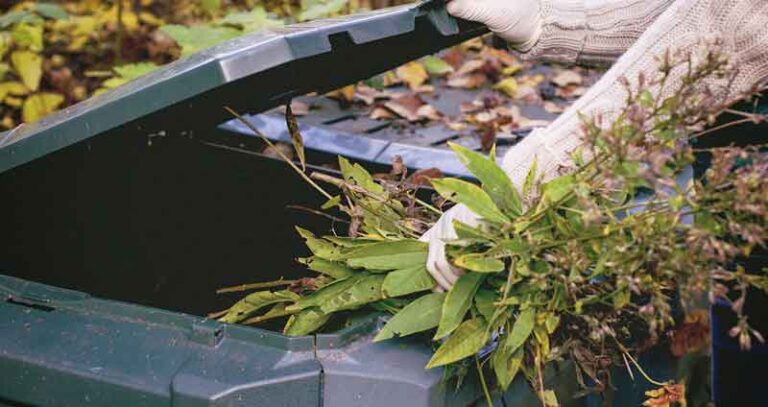
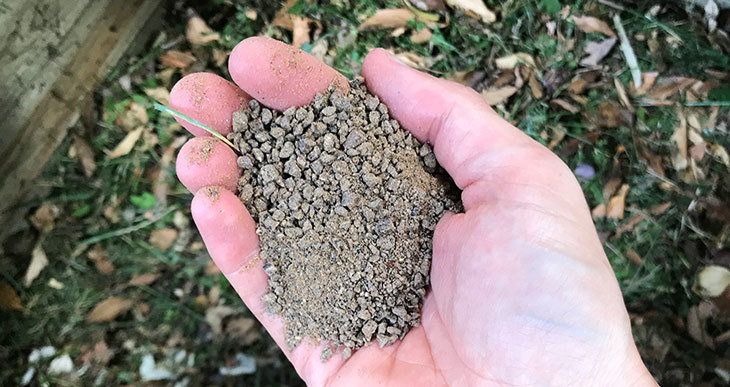
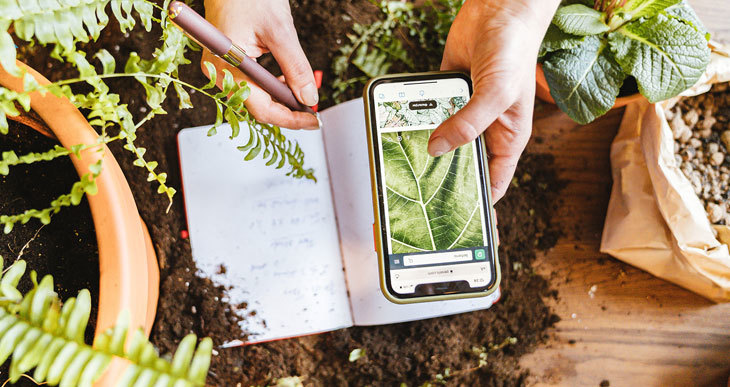

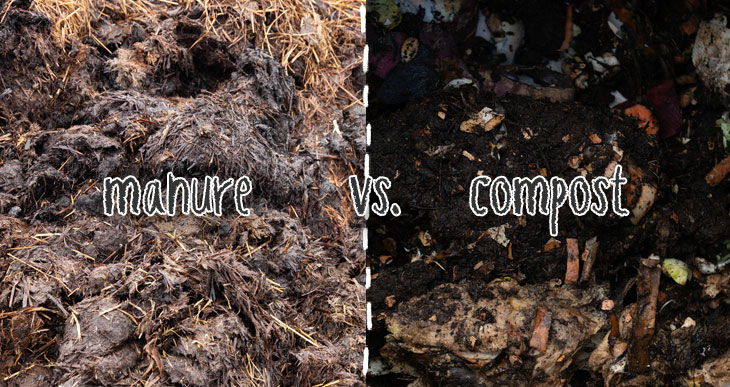

Thanks for the compost explanation for both organic and meat products. I’ve composted seriously 23 years all with organics and now trying meat and fish waste and bone with this effort to increase nitrogen. Your explanation helped. I enjoyed the easy reading too.
Happy to help John!